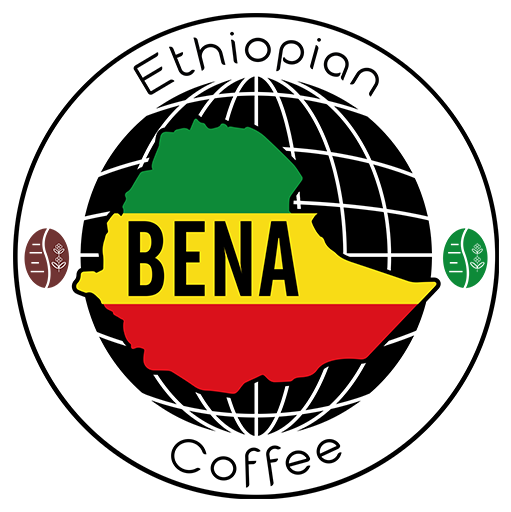Our Coffee
BENA coffee is produced by our family farmers in Sidama and Yirgacheffe in Ethiopia. We receive our coffee beans directly from our farmers, so great taste experience and quality are guaranteed. This way, you are guaranteed to have high quality coffee beans with authentic Ethiopian flavors and aromas.
BENA coffee is made with love and passion for the real coffee lover.


Perfectly roasted
All coffees are roasted in the Netherlands by professional coffee roasters. This is how we get the best out of the coffee bean and bring a great taste experience to your home.

Delicious aroma
We offer coffee with authentic Ethiopian flavors and aromas. Our coffee is produced with love and passion for the real coffee lover.

Premium quality
We receive our coffee beans directly from our farmers. This way we can guarantee high quality coffee for a fair price. And that is what you will taste.

100% Arabica
The most delicious coffee is made from freshly ground 100% Arabica coffee beans. These are known for its natural sweet, sour and bitter aromas.
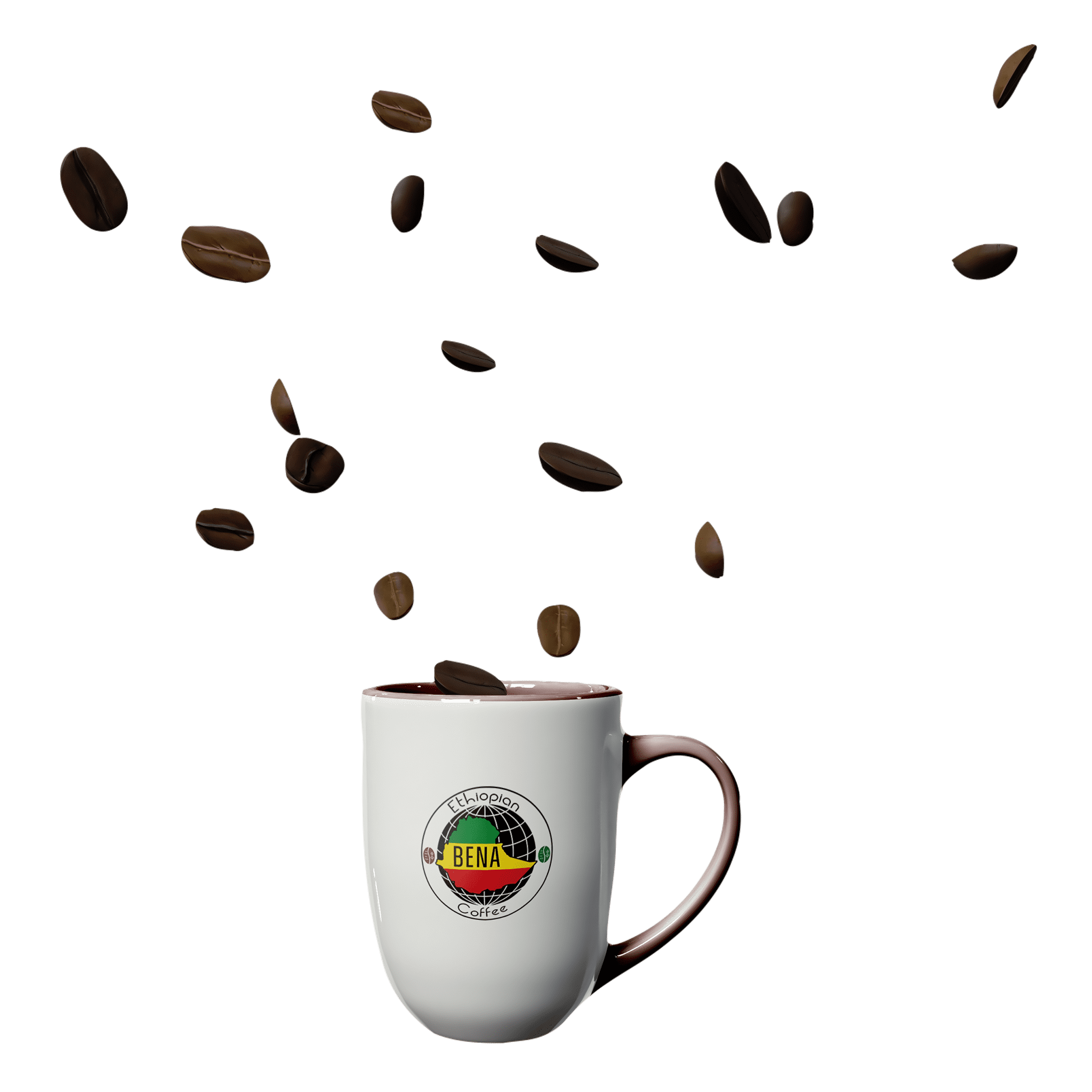
From coffee berry to a cup of coffee
Ethiopia is the country where coffee has found its origin. Our Ethiopian family farmers have been growing coffee for centuries. A coffee culture that is passed on from generation to generation along with accumulated knowledge, traditions, and coffee rituals. Coffee beans change color during the development phase. First they turn green, then yellow and finally red when they are ripe enough to harvest. Only the deep red coffee berries are picked. This process takes a lot of time and manpower, but produces the best coffee. Once the berries are picked, they are processed using the natural or washed method. The best coffee beans will be shipped in jute bags to the Netherlands.
In order to preserve the flavors and aromas of the 100% Arabica coffee beans for as long as possible, the beans are only roasted in Dutch roasting houses according to roasting profiles which are specially composed for Bena. After this, it is time for the roasted beans to rest for a few days. They are packed in coffee bags of 250 grams, 500 grams, and 1 kilograms when the rest period is finished. Now they are ready for shipment to the customer.
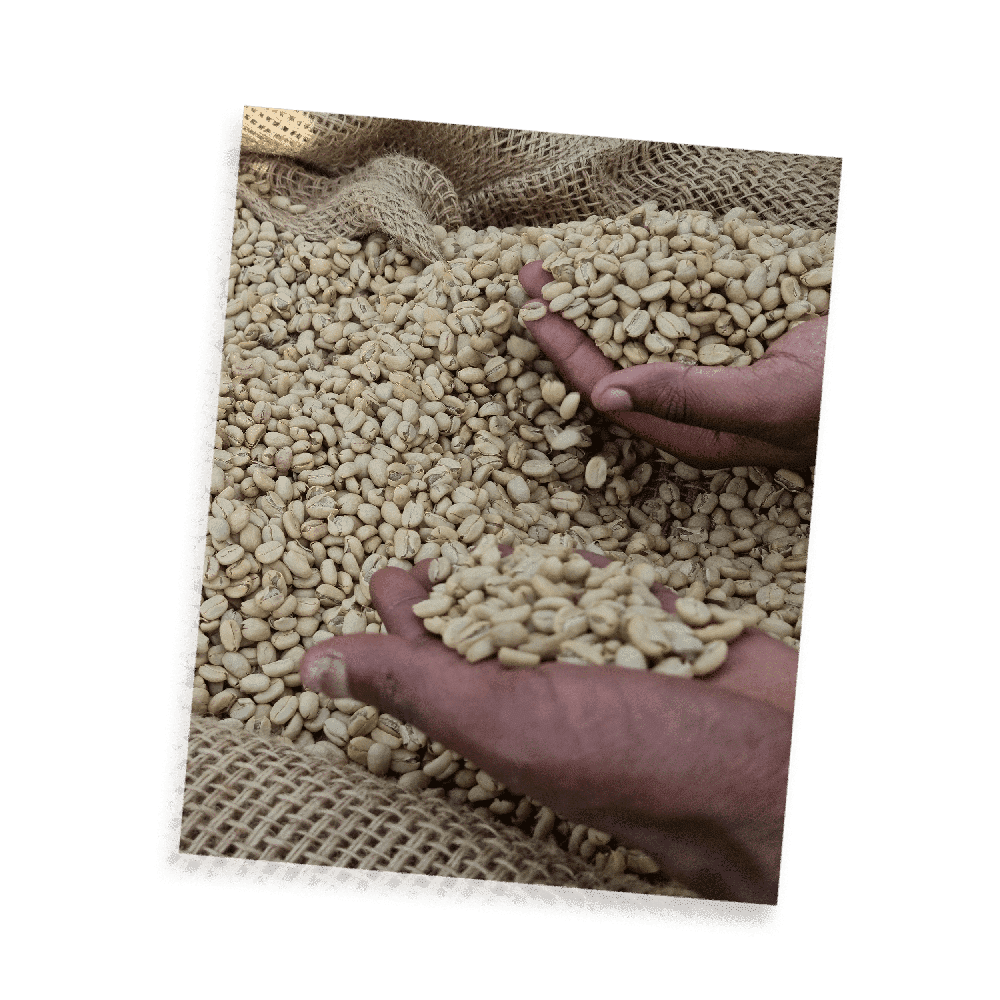
The washed method
The coffee berry is harvested by the farmers. This process is carried out carefully, because we want to ensure that no unripe coffee berries are picked. Then the coffee berries go to a washing station at our family farmers. Here, the coffee beans are extracted from the coffee berries. The berries are strictly controlled using water, selecting only the sinking berries. After this, the peeling process starts. The skins are removed from the coffee beans, which is also known as dehulling. The seeds soak for +/- 3 days in water, allowing the flesh to ferment. Afterwards, they are washed, rinsed and dried on fields, drying beds or in drying drums. In the end, the coffee beans are packed by Bena Exporter in jute bags of 30 and 60 kilograms. The bags are prepared for export to the port of Djibouti.
The washed method
The coffee berry is harvested by the farmers. This process is carried out carefully, because we want to ensure that no unripe coffee berries are picked. Then the coffee berries go to a washing station at our family farmers. Here, the coffee beans are extracted from the coffee berries. The berries are strictly controlled using water, selecting only the sinking berries. After this, the peeling process starts. The skins are removed from the coffee beans, which is also known as dehulling. The seeds soak for +/- 3 days in water, allowing the flesh to ferment. Afterwards, they are washed, rinsed and dried on fields, drying beds or in drying drums. In the end, the coffee beans are packed by Bena Exporter in jute bags of 30 and 60 kilograms. The bags are prepared for export to the port of Djibouti.

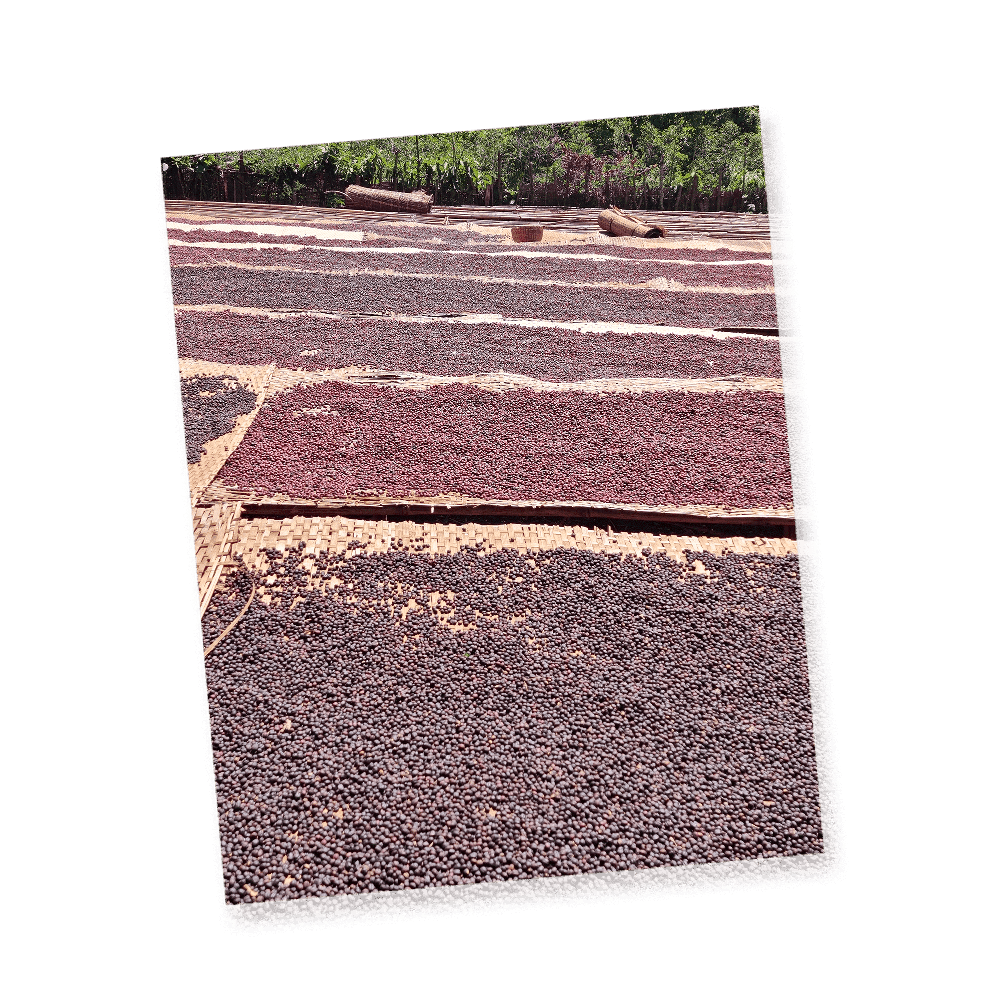
The unwashed/natural method
The coffee berry is harvested by the farmers. This process is carried out carefully, because we want to be sure that no unripe coffee berries are picked. The berries are spread on fields or drying beds to dry. The pit remains in the berry during this process. Drying removes the pit from the skin, making it easy for machines to remove this skin.
The longer the pulp dries, the sweeter the coffee seed becomes. At the washing station, the fermented pulp is removed with brushes. Then the coffee beans are packed by Bena Exporter in jute bags of 30 and 60 kilograms. The bags are prepared for export to the port of Djibouti.
Why the name Bena Ethiopian Coffee?
Ethiopia is the country where coffee has found its origin. Our Ethiopian family farmers have been growing coffee for centuries. A coffee culture that is passed on from generation to generation along with accumulated knowledge, traditions and coffee rituals.
The name 'Bena' is derived from the word Djebena. This is an Ethiopian coffee pot that is used during coffee ceremonies. The Djebena symbolizes the 100% Ethiopian arabica coffee beans that our family grows with a lot of love and passion. It represents our culture that we are proud of.
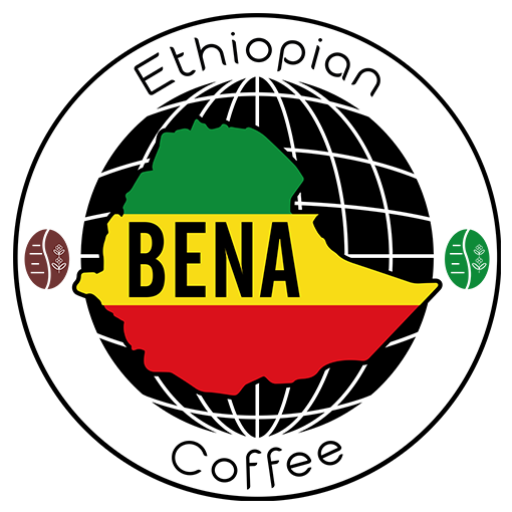
Why the name Bena Ethiopian Coffee?
Ethiopia is the country where coffee has found its origin. Our Ethiopian family farmers have been growing coffee for centuries. A coffee culture that is passed on from generation to generation along with accumulated knowledge, traditions and coffee rituals.
The name 'Bena' is derived from the word Djebena. This is an Ethiopian coffee pot that is used during coffee ceremonies. The Djebena symbolizes the 100% Ethiopian arabica coffee beans that our family grows with a lot of love and passion. It represents our culture that we are proud of.
